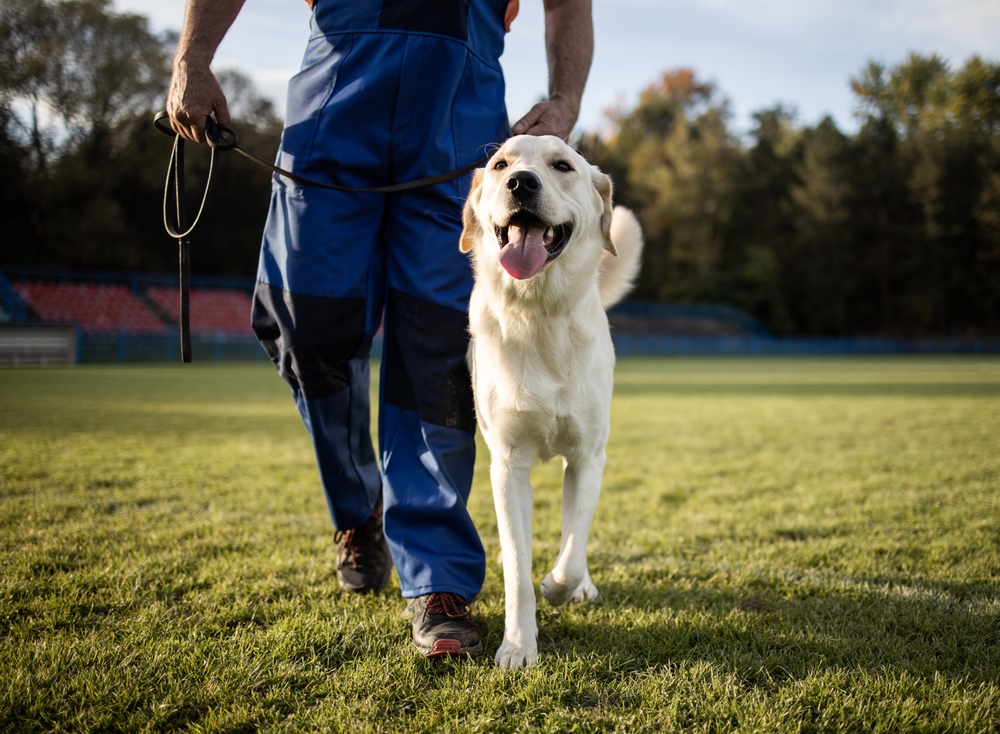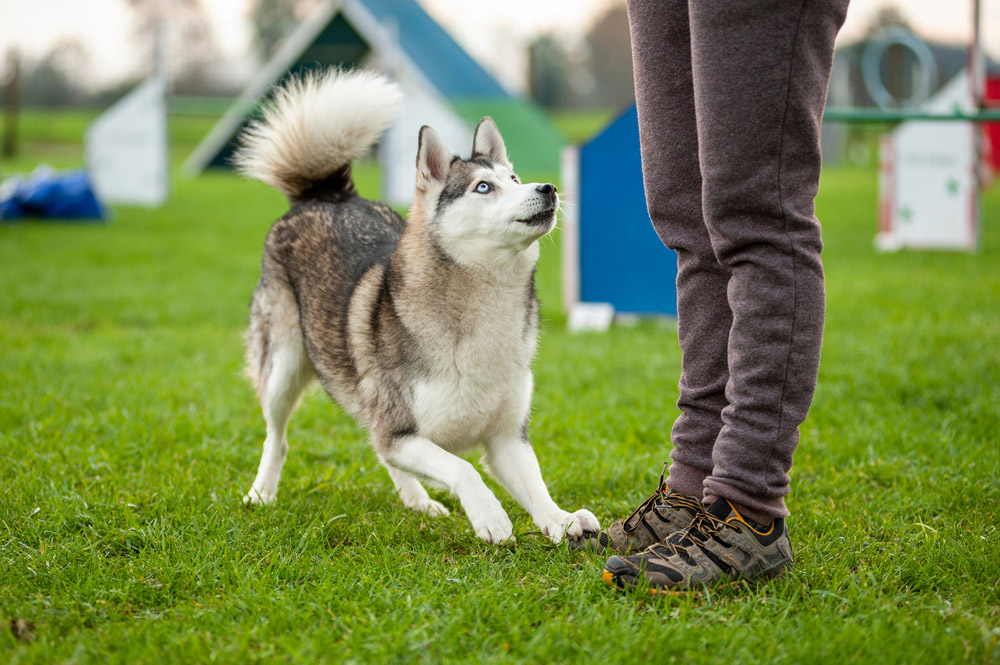In this article
View 5 More +Dog bootcamps are facilities that offer boarding and training for dogs and can provide other fantastic benefits for owners, especially if their pet is hard to control. However, they can be expensive, and many people wonder if they are worth it. If you have been thinking about having your dog attend bootcamp, keep reading as we explain how it works, what types of canines it tends to help the most, and the pros and cons of sending your pet to one of these schools, so you can see if it’s right for you and your dog.

How Does It Work?
Evaluation and Goal Setting
Before you send your dog to a dog bootcamp, you will likely meet with the counselors and trainers so they can evaluate your pet and understand their temperament, behavior, and training needs. They will do this by watching your dog’s reaction to various commands, environmental settings, and other stimuli. After the evaluation, they will ask about the goals that you have for your pup, which can range from basic training to correcting behavior issues like aggression, chewing, and barking.

Boarding and Training
Your dog will need to leave home to attend bootcamp, and they will usually be gone for 2–3 weeks, but if your pet has special needs, the program can last up to 5 weeks or even longer. While there, your pup will go through multiple training sessions each day, which will focus on their needs and goals. These sessions will often take place in various locations to help your pet learn to follow commands, even in strange environments.
Training Methods
Trainers will use various methods to help reach the goals that you set in your initial meeting, which can include positive reinforcement techniques, clicker training, and occasionally, corrective measures, depending on the dog’s behavior and the trainer’s philosophy. Controlled socialization sessions with other dogs and people are also likely to improve their social skills and reduce fears or aggression.
Owner Involvement
Certain programs include sessions where the trainer teaches the owner how to handle their pet and reinforce the behaviors that the trainer is introducing, which will help the training be more effective. The trainer will also use these sessions to update you on your dog’s progress, often sharing photos and videos of their time together. Some trainers may even arrange for a live demonstration so you can see the work in action.

Post-Camp Follow-Up
Once dog bootcamp is over, the trainer will help you reintegrate your pet into your home while ensuring that their training sticks. They may offer follow-up support, including additional training sessions and phone consultations if needed.

What Are the Different Types of Dog Bootcamps?
- Puppy Bootcamp: This can help with crate training, socialization, and potty training, helping to set up a strong behavioral foundation for your pet.
- Obedience Bootcamp: This usually works on basic commands and manners, with more advanced camps offering off-leash training or training for a specific activity or sport.
- Rehabilitation Bootcamp: This will help your dog deal with more serious issues, such as severe anxiety, aggression, or past trauma.
- Specialty Bootcamp: This can help your dog learn how to do something a bit more unusual, like becoming a service animal.
Why Is It Used?
Pet owners often choose a dog bootcamp when their pet has behavioral issues, when they lack sufficient time to train their pet properly, or when they are struggling to be effective with their training methods. Bootcamp can also help with advanced training techniques and when you’re preparing to make a big change in your life. Many people will also send a dog that they newly got from a shelter to a bootcamp in order to help them adjust to their new home and follow commands more quickly.


Advantages of a Dog Bootcamp
- Your dog will receive professional training from trainers who have plenty of expertise and experience with all types of dogs.
- Bootcamps offer intensive, daily training sessions that can address and correct issues more quickly.
- Trainers tailor the sessions to the dog’s needs, often resulting in a better outcome.
- Many programs expose dogs to various environments and situations, which can help them become more adaptable and confident.
- Dogs can learn advanced skills tailored to their abilities and the owners’ goals.
- Knowing your dog is receiving professional training and care can provide peace of mind, and it can be convenient if you don’t have the time to devote to training.
Disadvantages of a Dog Bootcamp
- Some dogs can feel stress and anxiety when they are away from their home and owner.
- Being apart from each other can affect the bond between you and your pet.
- A dog bootcamp can be expensive.
- Without constant reinforcement at home, dogs may go back to their previous behaviors.
- Owners miss out on the learning opportunity and experience of being directly involved in their dog’s training process.
- The industry is not uniformly regulated, which means standards can vary widely between facilities.


Frequently Asked Questions (FAQ)
Is Dog Bootcamp Worth It?
Dog bootcamp can be worth the expense for the focused, intensive training provided by a skilled and experienced trainer. Dogs can learn much faster, and the trainers often have the skills needed to correct problematic behavior, improving the quality of life for you and your pet. However, you’ll need to do your diligent research on any bootcamp that you are considering, as there are no regulations in this industry, and anyone can simply say that they are a dog trainer.
Is My Dog a Good Candidate for Bootcamp?
Most dogs can see significant and speedy improvement after visiting a dog bootcamp, especially those with behavioral problems. However, shy dogs and those with health problems may not be good candidates. The trainers at the camp will be able to help you determine if it is a good choice for your dog.
Are the Training Methods Used in Dogs Bootcamps Safe and Humane?
Reputable bootcamps will use only safe and humane training techniques with plenty of positive reinforcement. Still, it’s always a good idea to inquire about the type of training that a facility uses before signing up your pet.


Conclusion
Dog bootcamp can be a wonderful way to socialize your pet with other people and animals. It’s also a great idea for anyone who has a pet with behavioral problems or doesn’t have the time to spend each day in training sessions.
The trainers at the facility will talk with you about your dog’s needs and goals, and your pet will usually stay 2–3 weeks, though it could be longer. After training, they will come home, and there will be post-camp follow-up that can include phone calls and additional training sessions. Always research any dog bootcamps that you plan to contact to ensure that they emphasize the pet’s happiness and well-being and that their training methods are humane.
Featured Image Credit By: SpeedKingz, Shutterstock



















